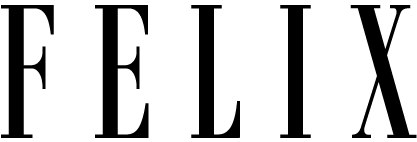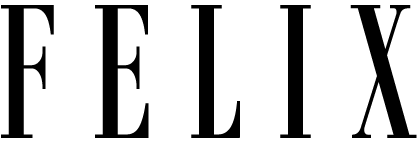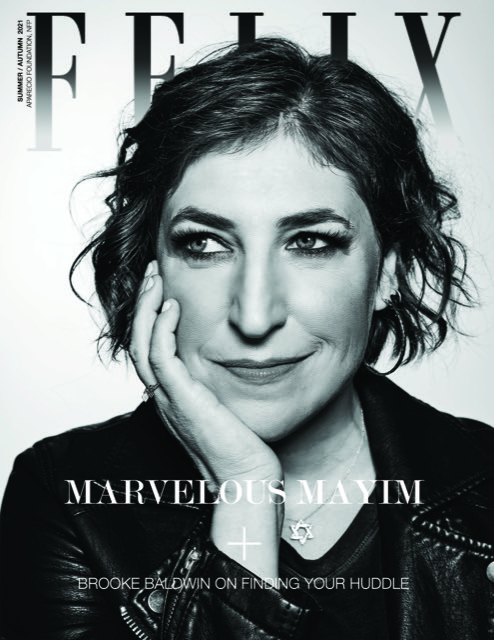Within a few days of winning the Brexit vote in June 2016, Nigel Farage, the British businessman who was one of the leaders of the movement, took a victory lap in the United States where he addressed campaign meetings for then Candidate Donald Trump.
Trump himself raised the specter of an immigration crisis in Europe in his campaign and has seen his ascendancy was a part of a worldwide reaction to the failed policies of the political class that had been in power for decades. As 2016 ended, the center-left government in Italy fell and, in Austria, Norbert Hofer lost the elections but remains a strong mainstream political alternative. France will go the polls in 2017 with someone like Marine Le Pen as a contender for its presidency. In an article in the aftermath of Trump’s victory, The Washington Post[1] identified the Brexit vote together with the victories of Rodrigo Duterte as president of the Philippines and João Doria as the new mayor of Sao Paolo, Brazil, as part of a worldwide upsurge of right-wing populism. Russia’s Vladimir Putin and India’s Narendra Modi could be easily added to the list.
This rise of populism, a political doctrine that pits the population against the ruling elite, is vexing in the democratic era. On the one hand, it is an expression of democratic will. On the other hand, it implies the rule of the mob, a prospect that conservative thinkers have long worried about. Populism has offered solutions on the left and the right.
Socialist parties were the early populists from the left. In recent history, the New Left in Latin America spearheaded by Venezuela’s Hugo Chavez, Bolivia’s Rafael Correa, and Bolivia’s Evo Morales offered the populism of the left. In Europe and North America, social democrats have proposed milder populism, especially on immigration. The right- wing populism certainly sees itself as a response to the leftist populism.
The Greeks, who gave birth to democracy, warned of the pitfalls of self-government as well. The Big Three—Socrates, Plato, and Aristotle—all believed that democracy was ruled by emotion, rather than rational thought, and produced neither representative government nor legitimacy. It was Pericles, a general, who first used the term democracy as he sought to persuade Athenian society to support his imperial war. Not surprisingly, elections and democracy have always carried that whiff of fraud. How can a system that narrows our choice to two parties really represent the hopes and dreams of a country of 300 million? What does one vote mean in this ocean of votes? How do people vote for policies that blatantly go against their own personal interest? We are left with confusion and conspiracies, not hope and dreams.
To the critics of democracy, Churchill has retorted: “Democracy is the worst form of government, except for all the others.” Democracy is messy and mobilizing the people has unintended consequences. Pericles and his noble-born coterie did not rule Athens forever; they couldn’t even end the war they started. As passions built, the nobles were replaced by commoners, which then prompted the aristocrats to launch a coup, replacing democracy with oligarchy. You might say that John Adams’ warning against the “tyranny of the majority” came from a close reading of Greek history. Democracy was a good thing, but the messiness of democracy had to be managed— hence political institutions, divided government, and checks and balances.
Populist leaders take advantage of the messiness of democracy to attack not only the extant rulers but also the political institutions that guard against the messiness of democratic politics. They weave truthful criticism with lies to exaggerate the extent of corruption in government. They portray themselves as the savior of the people, making unrealistic promises and scapegoating minority groups. They always claim to put their people first. Farage puts Britain first, Duterte puts Philippines first, Doria will put Brazil first. Putin and Modi put their people first. Trump has promised to put “America First”, though that is the term most associated with Charles Lindbergh, the famous aviator who was also the most prominent American supporter of Hitler and Fascism.
But what leader doesn’t claim to put their people first? Did Roosevelt and Churchill say they were putting American and British interests behind those of others? The issue here is not about intent but philosophy. The real difference is between democrats and authoritarians; those who believe that other opinions are not only allowed to exist but also to be listened to and accommodated, and those who want to shut down oppositions. Populists use nationalism to repress dissent. Those that oppose them are first marginalized, called anti-national, and then repressed. All of this happens in the name of democracy.
What is at Stake?
The political system that populist leaders such as Trump have railed against was built in the immediate aftermath of the World War 2, when, ironically, America was at its greatest. The world lay in ruins but the United States stood strong and proud. The war had spared the country except in Pearl Harbor. The drive to build weapons for the Allied cause had given the country an unprecedented economic boost, finally enabling it to kick away the Great Depression and setting a path toward using military spending to spur economic growth, the only country in the world able to do this systematically. The government ran large deficits, but the dollar was the strongest and most stable currency in the world. The United States was the sole possessor of nuclear weapons until 1948. In that moment of greatness, the United States chose a path that sought to redefine the world and avoid World War 3.
The Atlantic Charter, the postwar vision Roosevelt and Churchill laid out in 1941, revived the Wilsonian belief in international organizations. Learning from the Congressional rejection of Wilson’s League of Nations, American leaders pushed for a two-tier United Nations that would have greater chance of being accepted at home and abroad. The General Assembly and Security Council came together awkwardly, but they were designed to provide legitimacy and teeth to the new body. The UN Charter was a document that outlawed conquest. Though the next seven decades have seen a great deal of conflict, formal military victory has been the rarest thing: just a handful of nations have accepted military defeat in the form of a surrender. The reduced possibility of military victory redefined war itself. Conflict after World War 2 has remained limited to regions, smaller in scope, and brought relatively lower casualties. Some of the gains of the Atlantic Charter were lost in the Cold War confrontation, but the choice of proxy over open wars indicated how influential the Atlantic and UN Charters became.
While Populists are challenging the norms of that postwar international order; it was in the economic realm where the United States rewrote the rules in ways that most shaped the world to become targets for populism. In the years after World War 2, the leading economists and economic managers came to see the conflict as the consequence of failed economic policies that closed the door on international trade, leading to both the crash of 1929, the subsequent Great Depression, and eventually the rise of Hitler and Mussolini. In response, the United States led the creation of a trading system where countries could not arbitrarily impose restrictions on imports from individual countries, as happened prior to the Great Depression. The new rules of international trade were codified in the 1948 treaty called the General Agreement on Trade and Tariff (GATT), which would eventually become the World Trade Organization (WTO) and fuel rise of trading blocs such as the EU, NAFTA, and the proposed Trans-Pacific Partnership (TPP), which have become so detested by populist leaders.
The postwar trading system not only enabled trade of commodities and international finance, but also encouraged trade in services, transportation, communication, and immigration. After losing millions of young men in the war, European countries welcomed immigrant workers to rebuild factories and restart their economies. In Germany, immigrants came from Turkey; in France, from French-speaking Syria and Lebanon; and in the UK, from its former colonies of India and Pakistan. The workers brought over their families and friends and stories of immigrant success led others who did not have families to migrate. As Europe grew economically, it became an even greater magnet for immigration.
The United States was late-starter in postwar immigration. Washington reconsidered its immigration policies in light of the Cold War. As a superpower with interests around the world, American leaders had to ponder on how best to interact with the rest of the world. America’s involvement in different parts of the world had led to bursts of immigrations. There had been a wave of Chinese immigration to the United States after the Communist victory in China ousted the Nationalists led by Chiang Kai Shek. In the 1960s, the United States allowed in Vietnamese refugees, many of whom had worked with American forces and agencies in that country. The Immigration and Nationality Act of 1965 finally opened the United States to migration from anywhere around the world. The biggest flow of immigrants into the United States came through its southern borders, mostly to work in agriculture. Where in the past seasonal workers out-migrated after the harvest, the growing acceptance of immigration allowed migrants to stay on, move further North, and make permanent homes in the United States, eventually causing the demographic shift against which Trump voters have reacted. According to Bloomberg News, the Census Bureau reported that the majority of children under 5 in the United States were now nonwhite.[2]
At the core of the populist complaint is the issue of immigration. Postwar trade policy was intended to encourage economic growth, tie the world together with trade, and give nations a growing stake in maintaining international peace, but the postwar political and economic system has also led to demographic and cultural shifts that have caused deep anxieties that have fueled the populist upsurge.
The Populist Argument
At best, populists hold that postwar institutions have outlived their original purposes and become irrelevant to contemporary problems. Trump, for example, has argued that NATO is obsolete because the primary security challenge in the world today comes from terrorism. He has said that the success of countries like China in the last two decades should disqualify them from the special treatment on trade accorded to developing countries as part of the international trade treaties. Similarly, American immigration policy has outlived its Cold War reasons.
Trump confuses the China-TPP relationship (trade bloc intended to keep China out), but his argument that trade treaties reaps their benefits from on the backs of American workers resonates in the United States and in Europe. With this, he has attacked a shibboleth of postwar international order—the implicit deal that traded access to US markets in return for political compliance. The TPP epitomized this trade off: it sought to use US market access to encourage East and Southeast Asian states to work together with the United States to balance the rising power of China. It was a money-for-politics deal, which the United States has used effectively for seventy years. Not any more. With its demise, now, Chinese influence is likely to grow in East Asia. Rather than see immigration as an important strand in the web of interconnectivity American leaders deliberately wove together, Trump views Muslim and Mexican immigrants as potential contaminants of American society.
European populists trace their complaints more directly to the birth of the European Union and to the postwar open immigration regimes. The biggest three immigration magnets—Britain, Germany, France—began tightening up immigration rules as early as the 1980s, but the impetus for Europeanization—the making of a single European Union—led to the free movement of peoples within Europe. No matter what a country’s national policies were, the most successful Western European states were only as secure as the countries with the weakest immigration controls such as Greece and Italy. When the European Union expanded after the end of the Cold War, Polish, Romanian, and Bulgarian workers moved West as well—that proved to be last straw in Britain’s vote to exit the EU.
In Europe at least, the first step had been to encourage immigration so factories could be rebuilt and economic activity restored. Once that was achieved, manufacturing moved from high wage countries to low wage countries, but immigration continued unabated because European economies continued to grow as a result of economic and technological shifts. The immigrants themselves became politically powerful and protected their interests in being able to bring their relatives and friends. Equally, immigration was also a price for market access in developing countries: the United States and Europe could hardly ask Japan or China or Brazil to open their markets if they did not allow people from these countries access to their societies. Japan may seem like an odd choice here, but in the 1980s when the Japanese were aggressively buying marquee real estate properties in the United States, there was a very public backlash against what many Americans saw as a Japanese economic takeover of the United States. Chinese companies have faced similar questions in the last decade.
Outside Europe and North America, populist leaders have been equally concerned about “foreign” influence, though there are differences in how the influence is manifest. The populist impulse in these societies have targeted the same political and economic institutions for imposing foreign values to their societies, sometimes resorting to ethnic conflict and civil war. In Russia, Putin used Western animosity to encourage nationalism at home and to undermine political institutions at home and abroad. In the Philippines, for example, Duterte’s deadly war on drugs sees the scourge as a foreign influence in a traditional society. Duterte’s war on drugs has reportedly killed hundreds, many of whom are innocent. Now João Doria is proposing a get-tough policy on drugs in Sao Paolo as well. In the context of their countries, Duterte and Doria are defining right-wing policies that are far away from France’s Le Pen and Austria’s Hofer. But the already problematic application of the rule of law in these countries are now even more vulnerable. A democracy that dispenses with the rule of law, even if it is to solve urgent problems, ceases to be a democracy. Elections alone cannot defend democracy.
A New Authoritarianism
We can hardly think of an end to democracy in the United States, but few of us thought of a Trump presidency as a real possibility even months ago. In the guise of democratic politics, populism only appears to be what the people want. In reality, populism rises as authoritarian politics, where policy failures are met with violence, often not even conducted by state agencies but by energized social groups. If Trump pushes through the changes he has promised, the postwar international order will be dismantled, not by rogue nations and terrorist organizations, but the guarantor of the international system itself.
The dismantling of the postwar order will surely squash one of its central principles, of democracy promotion.
The American political scientist Samuel P. Huntington wrote of democracy as coming in waves. The first wave arrived in the 1820s with the rise of suffrage. The second wave swept the world after World War 2, when European powers retreated from the colonies. The Third Wave began after the end of the Cold War. Each wave was violent and was forced into retreat. Democracy rose and fell. The first wave was followed by a repression of the working class in the mid-19th century, an era that led Karl Marx to write his Das Kapital. The second wave left the former European colonies in Africa and Asia in the hands of indigenous autocrats. In countries like Zimbabwe, the revered freedom fighter became the dictator. The democratic wave after the Cold War produced war criminals such as Slobodan Milosevic in Serbia, the genocide in Rwanda, and untold and continuing miseries in the Congo.
The dangers of democratic transition have been widely recognized, but mainly in societies where countries that are new to its norms, institutions, and compromises. In consolidated democracies, these dangers are believed to dissipate. Those who measure democracy (see Polity IV, Democracy Index) continue to report gains, but there have been setbacks in recent years. The Arab Spring stalled in the Middle East. Putin’s return to power in Russia in 2012 sent the ranking of that country from a semi-authoritarian state to a full-fledged one. China has made incredible strides in democratizing local politics, but President Xi Jinping has also pulled back on new freedoms that the Chinese were beginning to enjoy. The Democracy Index (run by the Economist magazine) reported in 2105 that 51 out of 167 countries remained authoritarian.
The existential challenge to democracy doesn’t come from authoritarian regimes but rather in the heartland of democratic practice, in the United States, Europe, and, among developing countries, in India and Brazil. Italy was the first to elect to populist prime minister with an authoritarian bent. Silvio Berlusconi ran a circus of a government, trampling traditions, norms, and institutions for nine years. His electoral victories and endless scandals while in office showed grave deficiencies in the democratic process and undermined democratic faith, but he ended up serving three terms and became the longest-serving prime minister in postwar Italy.
It is worth noting that the first wave of democracy brought to power Andrew Jackson, the first populist and arguably authoritarian-minded president in the United States, and it came riding on the back of expanded suffrage for white males. While voting rights had expanded and shrunk since the colonial period, the end of the 1820s established universal suffrage for white men. Women, blacks, and even Catholics and Jews were generally excluded. Native Americans who were governed by treaties were not considered part of the polity. White male suffrage surely caused sharp declines in indentured servitude among poor white immigrants, and in the process solidified the racial divide. The doctrine of Manifest Destiny that followed Jackson’s victory proclaimed a white and Christian America. Though previous presidents had thought about a continental nation, the federal government had been reticent about abrogating treaties with native tribes. The forceful execution of majoritarian wishes went against Constitutional intent, but justified in the name of populism.
Populist leaders acquire legitimacy using democratic instruments such as elections (often manipulated), parliaments (which rubber-stamp the actions of the leaders), and judiciary (after stuffing the bench), only to become dictators. The great Spencer Tracy film, Judgment at Nuremberg, was a master-class in judicial manipulation in a majoritarian democratic context in a developed country, and remains valid today. In a recent Vox blog, Matthew Yglesias rejected the Hitler comparison for Trump in favor of Berlusconi. That is cold comfort. The new authoritarianism may reject Nazi excesses, but unbridled populism and weakened political institutions at home and abroad will undermine democracy.
1. Witte, Griff, Rauhala, Emily and Phillips, Dom. “Trump’s win may be just the beginning of a global populist wave.” Washington Post. Nash Holdings LLC, 13 Nov. 2016. Accessed 13 Nov. 2016, from https://www.washingtonpost.com.
2. Smialek, Jeanna and Giroux, Gregory. “The Majority of American Babies Are Now Minorities.” Bloomberg Markets. Bloomberg L.P. 24 June 2015. Accessed 13 Nov. 2016, from http://www.bloomberg.com.
Dasgupta is director of the University of Maryland–Baltimore County’s Political Science Program at the Universities at Shady Grove.






